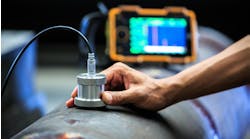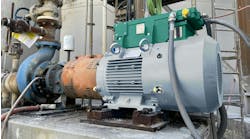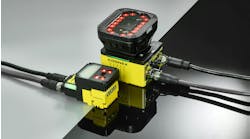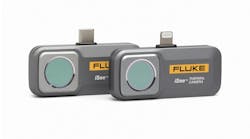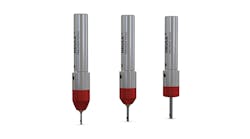Last October Metaldyne announced it was divesting its North American forging business, explaining, "As businesses and markets evolve, the forging industry is consolidating. While this business is attractive for forging specialists, it is not core to Metaldyne." It took only a few months for a group of "forging specialists" to finalize a deal. By March 2006, FormTech Industries L.L.C. had been organized to acquire the seven operations offered by Metaldyne. The new company announced its acquisition on March 15.
The FormTech organization is led by forging industry veteran and former owner of MSP Industries Dr. Richard McDermott, who is chief executive officer of FormTech. He is joined by Rick Larkin, also formerly with MSP Industries, and Lance Harris, former operating executive with MascoTech, the predecessor to Metaldyne's Forgings Business. At FormTech, Larkin is chief financial officer and Harris is chief operating officer.
Having acquired seven plants and their +1,000 employees in Michigan, Ohio, and Indiana, FormTech stakes claim to being North America's largest independent provider of automotive forgings, generating net sales of $350 million in 2005.
"We are all very excited at having acquired state-of-the-art production facilities," McDermott announced at the acquisition. "The FormTech team is committed to serving the metal forming requirements of the North American market, and plans to leverage these world-class manufacturing capabilities with a focus on expanding the technological frontiers of precision cold, warm, and hot forming."
The new company is producing gears and shafts for transmissions and transfer cases, as well as ring gears, clutch housings, bearing races, stem pinions, wheel spindles, and other parts. Automotive, heavy truck, and general industry are the primary markets it serves. FormTech lists among its customers automotive OEMs Daimler Chrysler, Ford, and General Motors, plus Honda and Toyota. Its Tier One customers include Magna, Getrag, Linamar, Dana, Koyo, Aisin, NTN, Sanden, and FAG.
FormTech will continue supplying forgings to Metaldyne under a long-term arrangement, officials say, but they stress that it is an independent, privately held company in which neither Metaldyne nor its shareholders will have an ownership stake.
When the acquisition was announced, Harris emphasized that the operational focus will be squarely on forging. "The strength of our people combined with the unrivaled range of capabilities will prove essential in growing the company as we focus on our core competencies: forging and machined forgings."
Plants and processes
With its headquarters in Royal Oak, MI, FormTech operates former Metaldyne facilities in Fraser, Detroit, and Troy, MI; Canal Fulton and Minerva, OH; and Fort Wayne, IN. They have a combined floor space of more than one million square feet:
- The 300,000-ft2 Royal Oak facility specializes in wheel hubs, spindles, rolled rings, and transmission and differential gears.
- The 200,000-ft2 Fraser plant produces forged shafts, differential side and pinion gears.
- In Detroit, FormTech produces differential gears, front-wheel-drive components, piston pins, steering sockets, suspension sockets, combustion plates, and end caps, at a 225,000 -ft2 site.
- The Troy plant specializes in internal-spline shafts, shot-peened, heat-treated, and coated automotive parts. It has 45,000 ft2 of floor space.
- The 260,000-ft2 Minerva operation produces pinion gears, shafts, and spindles.
- At Fort Wayne FormTech produces differential gears, combustion plates, and inner races at a 55,000-ft2 location.
Machining operations are concentrated at the 58,000-ft2 Canal Fulton, OH, location that provides turning, milling, drilling, tapping, induction heat-treating, broaching, shaping, hobbing, OD grinding, and balancing capabilities. Value-added machining operations are also performed at FormTech plants in Fraser, MI and Fort Wayne, IN.
The company categorizes its forging activities three ways: high-speed precision hot forging/forming, net-shape gear technology, and cold-forged shaft technology. Warm forging is an increasingly popular method for gear and shaft manufacturing, with benefits that include increased steel ductility for expanded design parameters, and no need to anneal prior to forging, which may eliminate the cost of heat treatment.
Cold forging offers significant cost-saving advantages when used with carbon and standard alloy steels. The primary advantage is material savings as precision shapes are produced that require little machining. Automated cold forging also offers improved production rates and die life. Product features include smooth surfaces, tight tolerances, concentric diameters, and beneficial grain flow.
Currently, FormTech operates eight Hatebur hot-forming machines; a 3,000-ton five-station Kurimoto hot-forging press; three Wagner hot ring-rolling/disk mill lines; a 2,500-ton Bliss warm-forming press; three multi-station automated press lines for cold-forging shafts; and more than 25 other presses, press lines, and machines.
Implementing online management
FormTech moved quickly to streamline overall management of its diverse forging operations. The company selected Plexus Systems to implement Plexus Online, a comprehensive business and manufacturing solution, across the enterprise.
"We've acquired state-of-the-art production facilities. Now Plexus Online provides us with the best-in-class manufacturing performance system," said McDermott, announcing the decision to work with Plexus. "We've put confidence and trust into Plexus Systems as our partner for handling not just our management information system needs using Plexus Online, but all internal information technology services, as well."
When it is fully implemented, Plexus Online will enable FormTech personnel to closely track critical manufacturing information - anywhere, anytime - using a simple web browser. Plexus Online ties together all plant operations, engineering, quality, customer/supplier communication, and back-office functions into one streamlined system.
"We look forward to helping FormTech revolutionize their business," said Rob Beatty, founder and CEO of Plexus Systems. "We plan to replace an extensive list of separate, 'dis-integrated' software packages with Plexus Online."
Beatty elaborated that "by working closely with FormTech's new management team, we plan to turn FormTech into one of the leanest and best performing companies in the industry."
COO Lance Harris told Forging that Plexus Online will be a strategic weapon for FormTech. "Our investment in this system is really to derive competitive advantage by having the ability to manage and deploy information in a very effective manner."
He explains, "The most effective organizations are ones that have a teamwork environment and that have information readily available with which to make decisions. That's the ultimate goal for the Plexus system: to get the information in the hands of our team members, who need technical, production, and quality data to make timely and effective decisions.
According to Chris Jones, FormTech's v.p.-technology, "This is a Web-based system, the very latest system that's available from Plexus. It means that all our employees can access the system, literally from anywhere in the world they can get connected to the Internet.
"It is all-encompassing, and it does touch every area of our business, but primarily, the core capability of Plexus Online is from an MES (manufacturing execution system) perspective, which means that it grows from the shop floor into every area of our business, including quality, purchasing, human resources, payroll, accounting, and other areas."
Jones points out that FormTech already is using Plexus Online, to quote new jobs. He also offers a colorful analogy to describe the implementation process. "The way we are going about implementation is to prioritize the plants as to which functional areas will benefit the most from the implementation.
"We 'light a fire' at each facility in each different area," he says. "For example, at Royal Oak, our accounting area is receiving the attention right now. At every other plant, there are various functional areas that already have been touched by Plexus. Once those fires are lit, the process is for the plant staff to fan the flames, essentially, by populating the Plexus databases. Ultimately, at every plant and in every function, the fires merge and the task is complete."
At some future point, customers probably will be allowed to access the system by invitation and through permissions and password control. They will be able to view progress on their work-in-progress.
In the early stages, there will be formal training sessions for FormTech personnel, both at Plexus and at company sites. According to Jones, however, much of the experience with the system will come from actually using it. "There will be a lot of on-the-job training, so to speak, because our people are actually populating the Plexus databases themselves. As a result, our staff will understand the system from the ground up, exactly what's inside the system, and how it functions.
Both Harris and Jones agree that the Plexus system is very easy to use, and Jones specifies that it has a "very user friendly graphic user interface, with a lot of icons and pictures."
Of the implementation, COO Harris says, "We have planned for the primary implementation to occur in a nine to 12-month period. Beyond that, we'll continue to do refinements and system upgrades."
Continuous improvement
Continuous improvement of operations is another important initiative at FormTech. In this effort, the total value stream is under close scrutiny.
Jones explains: "We're looking at everything from the steel mills right through to our customers' shops to understand the detail behind the value stream for every part.
"We plan to make improvements to 'smooth' that value stream. Where we can improve processes or combine processes, we will do that. Inherently, that will reduce costs, and it also will open up capacity - without having to spend extra capital." He says FormTech is preparing a current value-stream map, and later it will develop a more optimum value-stream map. Then, they will prioritize the steps toward achieving the more optimum state.
Harris adds, "We're basically applying a combined approach of lean manufacturing and certain technology-driven advancements to optimize the value stream."
In this process, the company is looking at processes that are outsourced. "There may be elements of the value stream that currently are outsourced, that continue to be outsourced, or there may be elements within a product line where it may make sense to establish certain capabilities in-house that we don't have today," Harris says. "With that said, we will continue to focus in on our core competencies, which are the forging aspects of producing components."
Asked about capacity expansion, the COO responds, "We don't have specific plans in place for capacity expansion at this point in time. However, we are in a position to be able to support expansion if the business requires it. It really will depend on how opportunities materialize in the future as to what we do relative to capacity expansion. I can tell you that Chris has already been making some trips around the world to benchmark technologies that we may be interested in pursuing to further build competitive advantage.
"We will be doing both: continuous improvement, getting our overall equipment effectiveness up, driving more performance through the existing asset base; but, at the same time, we will be looking for and identifying new technologies out there that may provide us with capabilities that in turn give us a competitive advantage in the market. In that case, we would be pursing those opportunities when we can make the business case to justify it."
Design and development
FormTech also is offering more design and development assistance to its customers. According to Harris, "Customer organizations don't have the expertise to design forgings that they used to have, and they are relying on us more to advise them and support them in the development process. That is one of the areas where we intend to build strength.
It begins with the design process, Jones says. "We have extensive internal computer-aided design and forging simulation capabilities. And in the area of net-shape gears, we have proprietary software that we use to help design gears for our customer base."
Also important is materials engineering and metallurgy. According to Jones, "We are seeing requests from the customer to support them in these areas. We are working closely with our steel suppliers to identify optimum steel chemistries for different applications. And, we are working closely from a metallurgical and heat treatment perspective with the customer to identify strength and durability characteristics that would be beneficial."
Fortunate position
So how do these executives forecast the new company's prospects? "We're in a very fortunate position in that our customer base is nicely diversified," Harris says. "We have both automotive and non-automotive exposure. A lot of the sales for our forging operations materialized as direct sales as forgings."
While FormTech's operations have been heavily focused on transmission, transfer case, transaxle, and driveline systems, Harris says they will use that base to expand the scope of their product lines.
And how does FormTech plan to develop new jobs and new customers? With talented people and advanced technology. "We have our own sales force, and that sales force is supported with a technology team that works hand-in-hand with sales in developing proposals for our various customers. We take a very collaborative and collective approach to the marketplace, working with the customer, and obviously working across the organization to make sure that we're fulfilling the needs of the customer."
Moreover, Harris remains upbeat about FormTech's ability to grow as an automotive supplier. Acknowledging the Big Three producers' troubles, he emphasizes that the industry is nevertheless producing +16 million vehicles per year. "I don't think that's going to change," he says.
"What's key is to have a diverse customer base," Harris continues, "to include the German and Japanese automakers, the 'New Domestics,' if you will. These companies first brought their assembly facilities here. Then, they brought in their engine plants, and now we're starting to see an expansion of manufacturing capacity for transmissions and transfer cases and transaxles. It's actually a net-growth opportunity for us, because until now those things have been manufactured offshore. They are focused on using local content, so we are excited about the prospects."
"We're also very excited about opportunities in the non-automotive sector," adds Harris. "That was something that Metaldyne did not focus on, but it still built up a fair amount of heavy truck and industrial business. We look at those sectors as an opportunity to leverage our existing capabilities and pursue some new customers and more market diversity."
Harris maintains FormTech has seen an increase in new business opportunities across the spectrum of its capabilities - warm-, cold-, and hot-forging - but he says the more notable trends, and greatest opportunities, are to be found in higher tonnage ranges. Harris then points to customers' desire for value-adding services. "Our focus is on forging," he says, "but we will provide value-added machining to the forgings we manufacture, as our customers dictate. Increasing numbers of customers are asking for the initial operations to be done."
